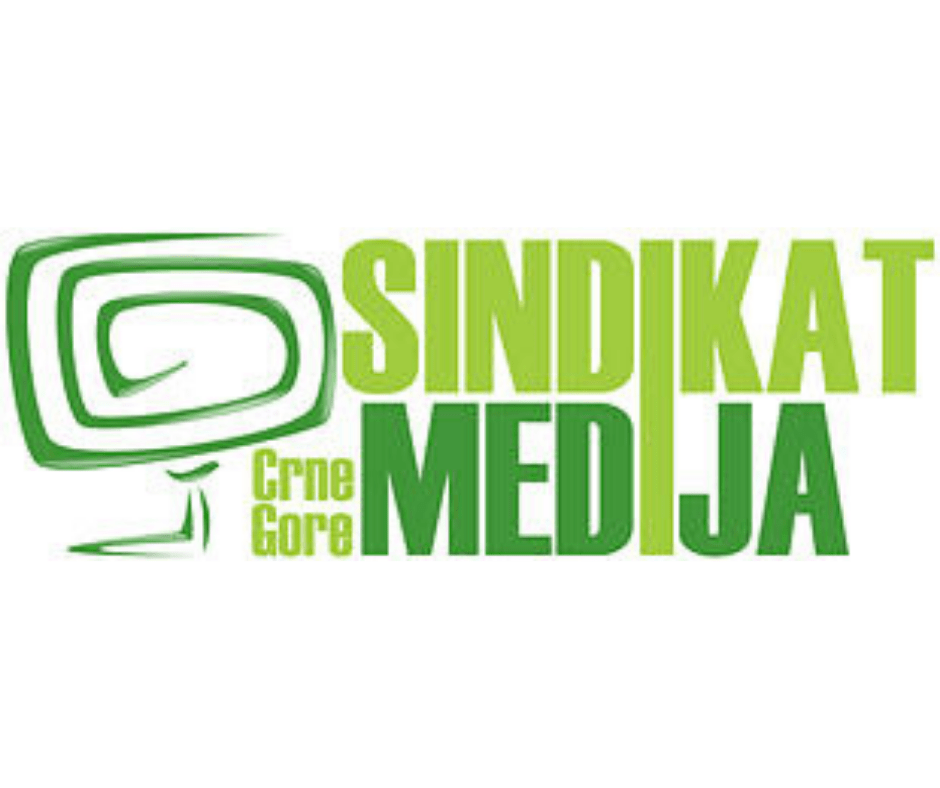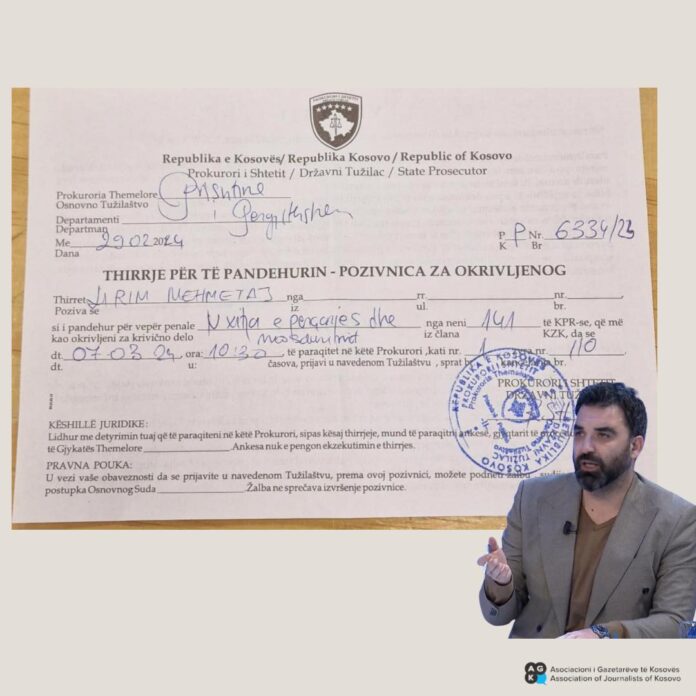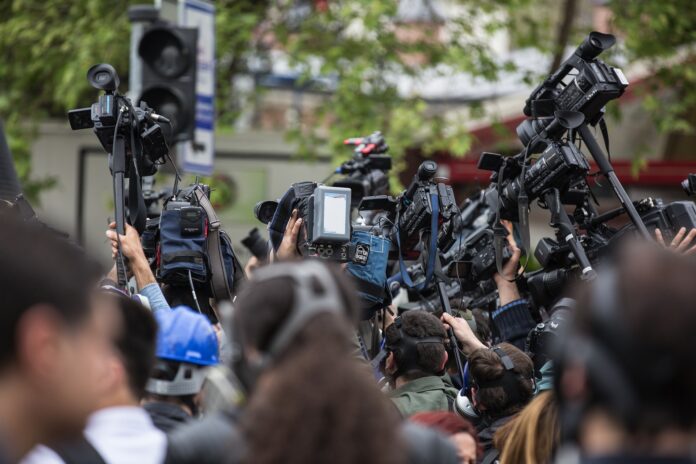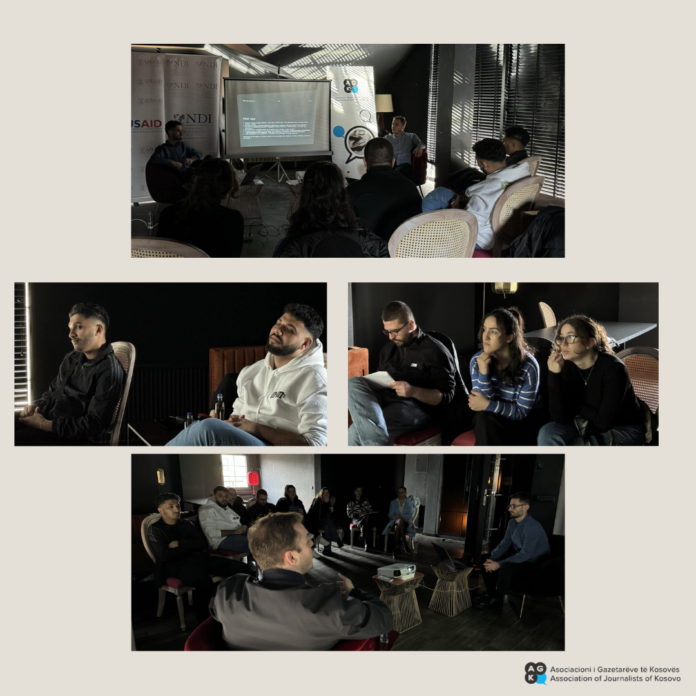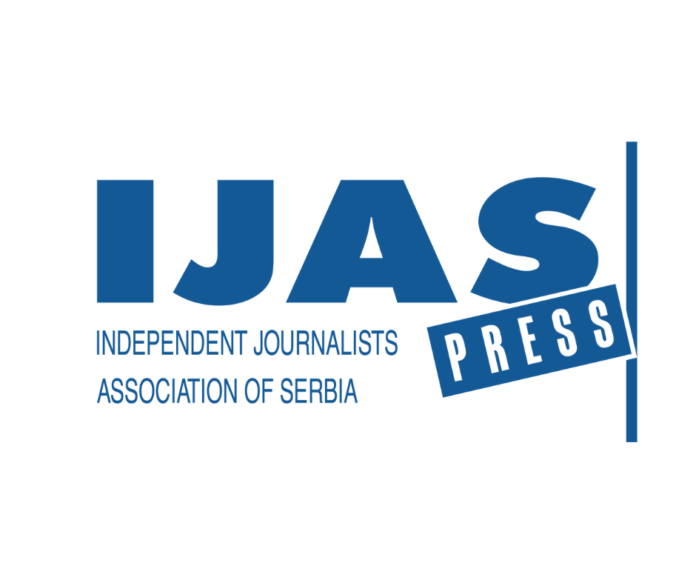On International Women’s Day, MFRR coalition partners publish a critical examination of attacks against women journalists in the European Union and candidate countries
To mark International Women’s Day, the Media Freedom Rapid Response (MFRR) presents an analysis of the troubling attacks against women journalists, in European Union member states and candidate countries. In 2023, female journalists faced a disproportionate number of verbal attacks, especially online. The MFRR partners call for collaborative efforts to protect their rights and foster a society free from discrimination.
On International Women’s Day, the partners of the Media Freedom Rapid Response (MFRR) emphasise the need to improve gender equality and overcome persistent challenges facing women in journalism. In particular, they highlight the alarming attacks against women journalists in the European Union member states and candidate countries in 2023. Data from the Mapping Media Freedom initiative reveals 281 recorded incidents of attacks against women journalists in this region during the past year.
Smear campaigns and online threats
Women journalists more commonly face verbal attacks than their male counterparts, according to MFRR data. Verbal attacks constituted 31.0% of recorded incidents involving male journalists, while for female journalists this figure was 42.7%.
Notably, smear campaigns have become significant tools aimed at silencing and discrediting women journalists, particularly when reporting on polarising topics during electoral periods. These campaigns create fertile ground for disinformation to spread unchecked.
The digital landscape has amplified patterns of harassment against women journalists during their professional activities. Online attacks, constituting 24.6% of all incidents against women journalists, are particularly alarming, far surpassing those against male journalists (12.5%). This includes mainly online harassment, such as intimidation, discredit, insult, harassment, sexual harassment, and bullying.
These targeted attacks extend beyond verbal assaults and include direct threats to the safety of journalists and their families, doxxing, and attacks taking on sexualized tones, such as rape threats. In 2023, women journalists faced at least 20 rape or death threats, of which 60% happened online. ARTICLE19 Europe has developed a series of briefings analysing the freedom of expression implications of online threats against women journalists and assessing investigations into these cases (including a focus briefing on investigations of online abuse against women journalists Spain).
The surge in online attacks aims to intimidate, silence, and stigmatise women journalists, potentially limiting their participation in public spaces. Understanding online abuse is imperative, as it directly impacts the ability of women journalists to fully exercise their right to free expression.
Physical assaults and legal incidents
Attacks in public spaces and during protests account for 18.9% and 15.3%, respectively, of the incidents documented involving women journalists. Physical assaults, though less frequent than for male journalists, still constitute 23.5% of incidents for women journalists, resulting in injuries in 17 cases. Legal incidents, including arrests, detentions, imprisonments, criminal charges, civil lawsuits, or defamation, are also significant concerns, constituting 25.6% of all incidents against women.
Through its Safety4Journalists platform, the European Federation of Journalists highlights how media workers have traditionally been considered at risk because of the nature of their work, while in reality, there is both a lack of awareness of safety issues and of protective measures in place for them. In 2023, EFJ created a Gender and Diversity Expert Group, for which the safety of female journalists emerged as one of the key work topics.
Through MFRR Article 19 Europe and the International Press Institute will organise a series of roundtables on investigating cases of online harassment against women journalists in the Western Balkans, drawing on ARTICLE 19’S policy briefs on the topic as well as on IPI’s training resources for newsrooms on how to support women colleagues, developed during its Ontheline campaign.
Across the continent: highlighting attacks on female journalists in Europe
The challenges faced by women journalists in 2023 extend beyond borders, with prominent cases illustrating the severity of gender-based threats:
- In Romania, investigative journalist Emilia Șercan faced a renewed smear campaign after reporting on plagiarism by the Home Affairs Minister.
- In Finland, right-wing MPs also launched a severe online smear campaign against Iltalehti journalist Ida Erämaa for her critical reporting.
- Serbian journalist Bojana Pavlovic faced harassment and the forced removal of her phone. The First Basic Prosecutor’s Office in Belgrade then refused to bring criminal charges, having considered the journalist had not been in danger.
- Italian freelance journalist Rossella Puccio faced violent attacks, including her family car being set on fire, underlining the ongoing danger faced by journalists reporting on human rights and social issues, such as migration, poverty, and women’s conditions.
- Marilena Natale, another journalist reporting on the Italian mafia and for this reason living under armed guard since 2017, received new death threats from the Casalesi clan.
- Montenegrin journalist Jelena Jovanović of newspaper Vijesti has also lived under police protection for over two years due to her investigations into organised crime.
The cases keep multiplying in 2024. Verica Marinčić, also from Serbia, was forcibly removed from the Indjija municipality building while reporting on a protest. Meanwhile, Ola Xama, an investigative journalist in Albania, continues to be the subject of an intensified smear campaign, including slut-shaming, the exposure of her private address, and attacks on her family members.
Despite these challenges and risks, these and many more resilient women journalists remain committed to their crucial work of informing the public.
Women journalists’ safety: a collective commitment
On this International Women’s Day, the MFRR coalition calls for a collective commitment from governments, media organisations, and civil society to address root causes and ensure a safe environment for women in journalism. While advocating for laws safeguarding women journalists’ rights and specific actions against gender-based online harassment, the coalition also urges media companies to prioritise the safety of female staff, fostering harassment-free environments and providing comprehensive support in the event of an attack. This collective commitment aims to advance gender equality, stand in solidarity with women journalists facing threats, and create a society free from harassment and discrimination.
Signed
- ARTICLE 19 Europe
- European Centre for Press and Media Freedom (ECPMF)
- European Federation of Journalists (EFJ)
- Free Press Unlimited (FPU)
- International Press Institute (IPI)
- OBC Transeuropa (OBCT)
Source: EFJ


